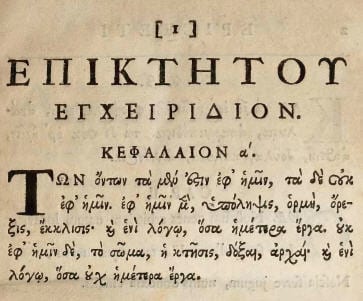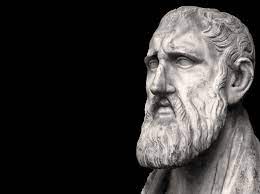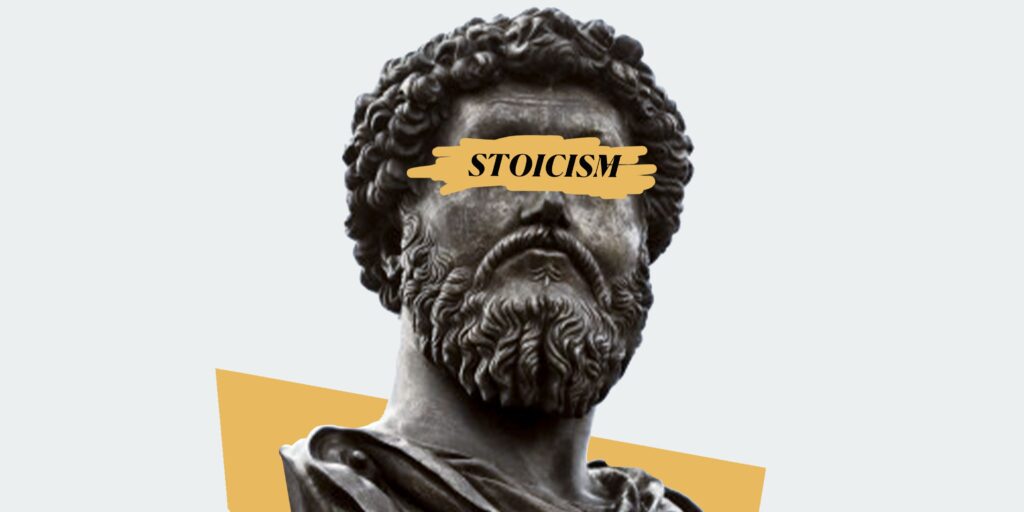The Enchiridion is a concise philosophical text written by the ancient Greek philosopher Epictetus. This work is considered one of the most influential Stoic writings and is widely read and studied by scholars and enthusiasts of philosophy.
The History of The Enchiridion
The Enchiridion was written by Epictetus in the 2nd century AD, during the Roman Empire. Epictetus was a slave who eventually gained his freedom and became a prominent philosopher. His teachings were recorded by his student, Arrian, who compiled the Enchiridion as a summary of Epictetus’ ideas.
The Philosophy of The Enchiridion
The Enchiridion is a guide to Stoic philosophy, which emphasizes the importance of living a virtuous life and developing self-control. The text encourages individuals to focus on what is within their control and to accept the things that they cannot control. This philosophy promotes the idea of living in accordance with nature and developing a rational mindset.
The Content of The Enchiridion
The Enchiridion is composed of short passages that cover a wide range of topics, from the nature of the universe to the role of fate in human life. Some of the key themes that are explored in this text include:
1. The Importance of Self-Control
Epictetus emphasizes the importance of developing self-control in order to live a virtuous life. He encourages individuals to focus on their own thoughts and actions, rather than external events that are beyond their control.
2. The Role of Fate
The Enchiridion discusses the role of fate in human life and emphasizes the importance of accepting what is beyond our control. Epictetus argues that individuals should focus on their own choices and actions, rather than worrying about external events.
3. The Nature of Virtue
The Enchiridion explores the nature of virtue and emphasizes the importance of living in accordance with nature. Epictetus argues that individuals should focus on developing their own character and cultivating a rational mindset in order to live a virtuous life.
4. The Power of Reason
The Enchiridion emphasizes the importance of using reason to guide our actions and decisions. Epictetus argues that individuals should strive to develop a rational mindset and to avoid being controlled by their emotions.
The Influence of The Enchiridion
The Enchiridion has been widely read and studied throughout history and has had a significant influence on Western philosophy. Its emphasis on self-control and rationality has resonated with many readers and has inspired countless individuals to live a virtuous life.
Conclusion
The Enchiridion is a concise yet powerful guide to Stoic philosophy. Its emphasis on self-control, rationality, and living in accordance with nature has made it a valuable resource for individuals seeking to live a virtuous life.
FAQs
- Who wrote The Enchiridion? Epictetus, an ancient Greek philosopher, wrote The Enchiridion.
- When was The Enchiridion written? The Enchiridion was written in the 2nd century AD, during the Roman Empire.
- What is the philosophy of The Enchiridion? The Enchiridion is a guide to Stoic philosophy, which emphasizes the importance of living a virtuous life and developing self-control.
- What are some key themes explored in The Enchiridion? Some key themes explored in The Enchiridion include the importance of self-control, the role of fate, the nature of virtue, and the power of reason.
- Why has The Enchiridion been so influential in Western philosophy? The Enchiridion’s emphasis on self-control, rationality, and living in accordance with nature has resonated with many readers throughout history, making it a valuable resource for individuals seeking to live a virtuous life.
- Is The Enchiridion still relevant today? Yes, The Enchiridion’s philosophical teachings continue to be relevant today and are widely studied by scholars and enthusiasts of philosophy.
- What is the significance of the title “The Enchiridion”? The word “enchiridion” comes from the Greek word for “handbook” or “manual,” and the title reflects the text’s function as a concise guide to Stoic philosophy.
- How can The Enchiridion be applied to modern life? The Enchiridion’s emphasis on self-control, rationality, and living in accordance with nature can be applied to modern life in various ways, such as developing habits that promote self-discipline and learning to focus on what is within our control.
- What are some other notable works of Stoic philosophy? Other notable works of Stoic philosophy include “Meditations” by Marcus Aurelius, “The Discourses” by Epictetus, and “Letters from a Stoic” by Seneca.
In conclusion, The Enchiridion is a concise yet powerful guide to Stoic philosophy, emphasizing the importance of self-control, rationality, and living in accordance with nature. Its teachings have had a significant influence on Western philosophy and continue to be relevant today, providing valuable guidance for individuals seeking to live a virtuous life.



